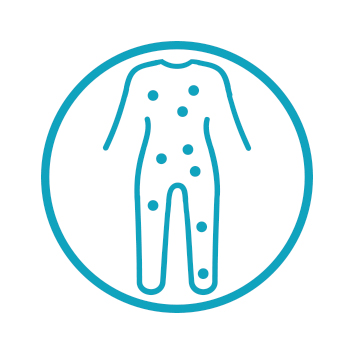What is multiple sclerosis?
Multiple sclerosis is a chronic degenerative neurological disease. It occurs when the cells of the immune system, the lymphocytes, attack the myelin in the nerves causing it to disappear and, therefore, the nerves lose their function.
What are its symptoms?
The first symptoms that the patient feels are strange feelings in the limbs: sensation of rubber musculature, loss of normal sensitivity of these areas. Afterwards, there is a progression of the disease which main symptom is the stiffness of the limbs, which can make the patient require technical assistance due to the loss of mobility. Multiple sclerosis is not always an autoimmune disease, so it is necessary to highlight other pathologies and design the most appropriate personalized treatment.
How is it treated in Biosalud?
With Biological Medicine we will determine the causes of sclerosis, excluding the case of Lyme disease, and we will prescribe a specific and personalized protocol for each specific case. In general, the treatment is carried out in our medical centre and is complemented by treatment at home. In order to control the evolution of the disease, we use biological medicine techniques such as molecular hyperthermia, serums or energy regulation of the body.
Do you think you may have multiple sclerosis?
If you have any of the following symptoms, and especially if they persist for more than two weeks or a longer period, you should visit a doctor: “rubber” muscles in the limbs and sensitivity losses, pain, lack of balance, chronic tiredness
On many occasions, the true nature of a disease is Lyme Disease
If you want to request an appointment, please, phone us or fill the form and we will get in touch
Symptoms of multiple sclerosis

The fundamental characteristic of this disease is that it can affect any area of the central nervous system and cause different symptoms, conditioning the impact and transformation of each person.
The symptoms can be of several types:
- Muscular: such as lack of balance and coordination, numbness or muscle spasms, problems walking or moving arms and legs.
- Intestinal: such as alterations in the urinary system or constipation.
- Eyepieces: such as double vision or loss of vision.
- Neurological: such as memory loss and depression.
- Sexual: erection problems.
- Oral: as hard to understand language or chewing problems. Fatigue is also a very common symptom in multiple sclerosis.
These symptoms may come and go, manifest in different combinations, and may be mild, moderate, or severe.
Diagnosis of Multiple Sclerosis

The causes of multiple sclerosis are still unknown, but it is known from several studies that there is a genetic factor and various environmental factors, such as lack of sun exposure, which are determining factors. The tests we carry out at Biosalud Day Hospital for the diagnosis of multiple sclerosis are accompanied by a magnetic resonance imaging (MRI) that will allow us to know the injured areas since demyelination tends to occur more frequently in the brain mass, brain stem or spinal cord.
At the Biosalud Day Hospital biological medicine clinic, we perform any type of test on a large battery, depending on the information we obtain from the clinical history. It is a question of establishing with the greatest clarity the reason and causal factors of this chronic pathology.
Treatment of multiple sclerosis

At Biosalud Day Hospital we have extensive experience and good results in the treatment of autoimmune diseases thanks to the techniques offered by biological medicine.
Once we see that we have stopped the autoimmune process with the treatment, we will try to recover the lost functionality with regeneration treatment.<br/ > If multiple sclerosis is caused by Lyme disease, it is necessary to stop the injuries and the degenerative process and recover as much as possible within the patient’s ability to respond. In this treatment, we would not only have to regulate the immune system but also remove the active infections in that person (borrelia, babesia, erliquia, chlamydia pneumonie, which produce painful pathology).

